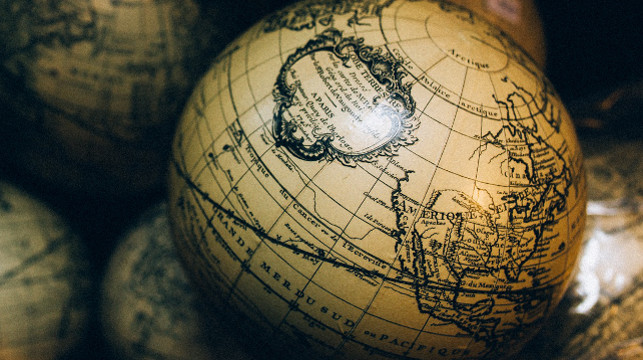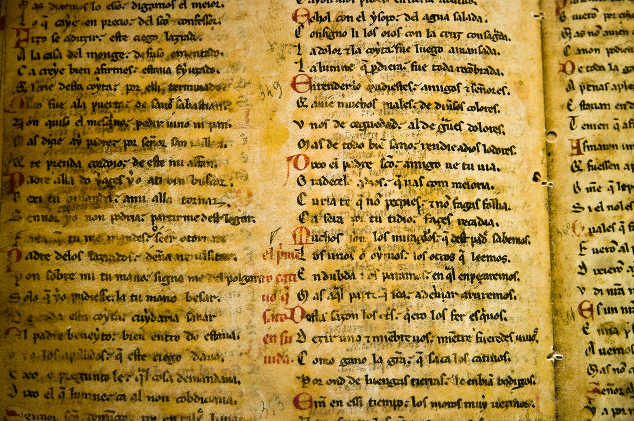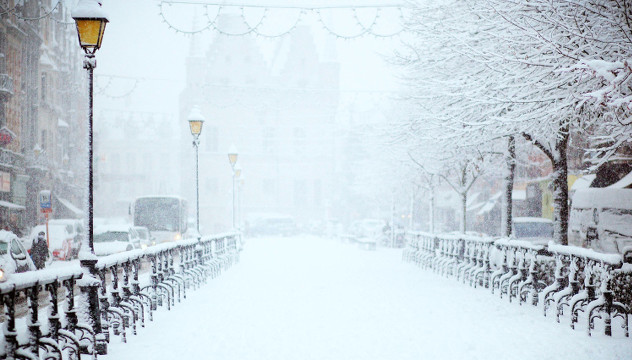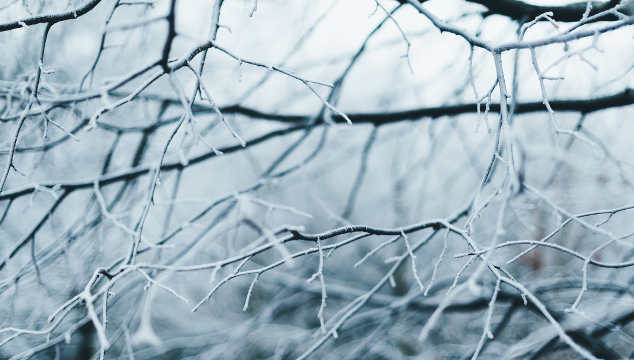
Sup?
I know fireworks are traditional, but I’m fire-worked out and although the year has changed the weather in the West Country hasn’t.
I’m not whinging about my morning walk with SWP because the Queen of my heart (from now on QofMyH) took him. He is bedraggled, happy and we have muddy paw prints all over the house.
While SWP was enjoying rolling in the mud, I was listening to Français Authentique while enjoying my breakfast yoghurt. The key concept behind Français Authentique is that you listen to the same content again and again, ideally with some focus.
This morning I was focused (unusually for new years morning but the body works in mysterious ways), and I was listening to an episode which mentioned countries.
As I was listening attentively decided to check the grammar. French grammar is a walk in the park compared to say: POLISH, but it still has its complexities, nuances and subtleties.
How to use French articles with countries very very easily
I decided to simplify the use of articles relating to French countries to a couple of rules that will work 99 percent of the time for me. There is a Latin phrase Qui docet discit (‘He who teaches learns’) and I’m rather hoping that writing this down will help me as well as you.
Before we start you need to know:
Countries have a gender which can be either Masculine or Feminine.
When referring to a country in French, the definite article (the) is used, and so the gender is important.
La France est très belle (France is very beautiful).
L’angleterre est le plus beau du monde (England is the most beautiful country)
Crucially for me, as I live in Europe and mainly refer to european countries, the gender of most european countries is feminine.
As an aside in French, almost all the countries which end in e are feminine.
L’Allemagne Germany
L’Angleterre England
La France France
L’Espagne Spain
L’Italie Italy
La Pologne Poland
La Roumanie Romania
La Russie Russia
La Suisse Switzerland
Le Portugal Portugal is masculine.
The point here is that the article of any country that I am likely to refer to or talk about is feminine. By the way, I don’t want to sound disrespectful towards the Portuguese here (and I love the sound of Portuguese) but I’ve never been to Portugal and am unlikely to talk about it in French.
Rule number 1. All countries are feminine
My first rule is that all countries in French are feminine in gender (which they obviously are not), but all countries that I am likely to refer to are!
Rule number 2. Always use en with countries
Always use en when talking about going to a country, living in a country and so on.
Again this is patently wrong as au is used with masculine countries, but as I almost always refer to feminine countries, when I want to say ‘I’m going to ‘ followed by a country, I use en.
More precisely, En is used after feminine French countries, continents and feminine regions.
Je vais en Ecosse le mois prochain
Il travaille en Allemagne
Ils vivent en France depuis longtemps
Je suis allé en Algérie cet été
Il habite en Provence (la Provance)
Cet été il part en Bretagne (la Bretagne)
Rule Number 3. The definite article isn’t used in conjunction with en.
I now have three simple rules which for me will almost always allow me to speak grammatically when using countries in French.
As we are talking about going to places, I thought I would mention that:
à is used with towns
Jean habite à Edimbourg
If you want life to be complicated:
If you want to speak correctly, all of the time then you need to know that :-
au (a + le) is used with masculine countries
Philippe est sa femme partent demain au Costa Rica
aux (a + les) is used with masculine countries
Ils habitent aux Etats-Unis
Dans + le is used with regions that are masculine plural
Il est né dans le Poitou
Nous travaillons dans le Jura
All places ending with a are masculine, as are British names of counties.
Teresa est en vacances dans le Yorkshire
Personally, I’m aware that there is a difference between masculine and feminine countries but am content to learn my simple rules and pick up the subtleties over time and exposure to the language.
Overlaps with other Romance languages
There are big overlaps between the grammar of the romance languages, and the use of definite articles with countries is one of them. I’ve briefly outlined a few of the similarities – just for fun that you can see the similarities between French, Italian and Spanish.
Italian
La Francia, La Germania, La Gran Bretagna, L’Italia, La Polonia, La Romania, La Spagna, La Svizzera
Il Portugallo
Again the only masculine country is Il Portugal (Portugal), and again the definite article is used in the same way as in French with countries.
L’Italian e le sue regioni … (Italy and her regions …)
Conosci l’Inghilterra (Do you know England?)
In is used for counties and continents, and a is used with cities and small islands. In is used in the same way as the French en.
sono andato in Francia (I went to France).
sono andato a Roma (I went to Rome).
Sono stato in Italia tre anni (I went to Italy three years ago).
Spanish
The genders are again identical (for the european countries chosen) with Portugal being the only country of the bunch with a masculine gender.
Spanish doesn’t in general require the definite article before a country. Common exceptions are La India (India), el Reino Unido (the United Kingdom) and Los Estados Unidos (The United States).
In fact, Spanish is the easiest of the lot regarding countries with my simple rules being:
Don’t use the definite article in front of countries apart from La India (India), el Reino Unido (the United Kingdom) and Los Estados Unidos (The United States).
Use en where we would use in and a where we would use to.
¿Fuiste a Inglaterra el año pasado? (Did you go to England last year?)
Estaba en Londres. (He was in London)
Vivió en Londres. (He lived in London)
¿Has estado en Inglaterra? (Have you been in (to) England?)
There are numerous example in the 500 sentences in different languages.
Romanian
All the above countries are feminine, even Portugal which is Portugal in Romanian.
I was going to add more about Romanian but am not sufficiently sure of my ground. I’ll add more to this post when my Romanian studies are more advanced:)
References
I like and use books, not only on my kindle but real physical copies:
Complete Romanian: Teach Yourself (Book/CD Pack)
Easy Learning French Complete Grammar, Verbs and Vocabulary (3 books in 1) (Collins Easy Learning French)
Easy Learning Spanish Grammar (Collins Easy Learning Spanish)
Talk Italian Grammar
Baci,
MF








